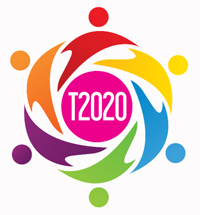Call for papers
Through the prism of ecological transition, T2020 will develop 4 complementary sessions.
Each session is organized according to 3 complementary sub-sessions, with presentations and a period of ex- changes around posters.
February 3rd: Submission deadline
- S1 Sustainable Food
S1-1 Urban agriculture, vector of ecological transitions (.pdf)
The contributions expected for sub-session S1-1 concern the roles of urban agri- culture in sustainable food by specifically exploring projects related to territorial design, urban food policies or analysis of multifunctional and hybrid AU projects such as : collective, family or corporate gardens; urban farms...
S1-2 City-campaign transactions (.pdf)
The expected contributions for sub-session S1-2 therefore concern food and city- countryside sociability: agritourism, various types of markets, organizational and functional transitions of farms (hybridizations) and their links to their territories.
S1-3 Agroecology and practices changes (.pdf)
The expected contributions for sub-session S1-3 relate to the conditions for sustainable agricultural production. For example, the evaluation, promotion and optimization of ecosystem services, the agronomic valorization of organic matter or the issues of soil life; or, support for changes in practices of farmers, wine- makers or gardeners, and also management changes for non-agricultural sites: for example the creation of nature spaces for collective habitats or the taking into account of fertility Soils from industrial sites ...
S1-4 Sustainable food policies and territories in transition (.pdf)
In the session S1-4, we suggest tackling food systems transition in terms of two and complementary areas:
Area 1. Food system transition through and within territories: Actors, scales and collective action.
Area 2. Food systems transition through integrative policies design.
We are also seeking for proposals presenting methodological frameworks for analyzing, guiding and assessing place-based food transitions and dedicated public policies.
- S2 Health-Environment
S2-1 Crossed perspectives - From the field experiments to the laboratory (.pdf)
The expected contributions for sub-session S2-1 concern: (i) multi-criteria and interdisciplinary modeling of the phenomena involved in the fate of pollutants in the environment, their transfers, transfor- mations and impacts on the biosphere; (ii) complex systems management, interdisciplinary scientific ex- pertise, decision support tools and the development of advice and solutions to promote human health and ecosystems; (iii) cross-sociotechnical knowledge of the biogeochemical cycles, life cycles of the va- rious commonly used articles or materials (LCA), practices developed at different steps of the sectors in order to act in an efficient and contextualized way to avoid, reduce or repair the potential environmental and health risks; (iv) the coherence of ecosystem quality management systems (water, soil, air) with sus- tainable management issues.
S2-2 Environmental and Health Standardization of Natural Resources (.pdf)
This session aims to better understand the processes of normalization of social relationships to nature and health by bringing into dialogue the heterogeneous dynamics of defining problems and solutions "health and environment" supported by public, professional or citizen action.
The contributions may concern the following three lines of questioning (non- exhaustively, in whole or in part):
The social fabric of problems and risks (axis 1)
The preservation of natural resources, between sectors and territories (axis 2)
Preserving natural resources: judgments and social or legal proceedings (axis 3)
- S3 Energy transition Les dynamiques de changement dans la transition énergétique (.pdf)
Call for papers will shortly be available
- S4 Collective intelligence: a vector of ecological transitions
S4-1 Organising alternatives to drive transition(.pdf)
Expected contributions can consist of studies of radical experiments of organizing transition in companies, communities, associations, alternative organizations, etc. Ex- periences brought to the fore can illustrate the Why and How of chosen approaches given a specific context. In turn, they enable to question conventional theoretical and methodological frameworks and propose other, more relevant, frameworks to align with the empirical reality
S4-2 Otherness as a vector of pedagogical innovation (.pdf)
In order to better understand if and how otherness is a driver for pedagogical transition, the expected contributions for S4-2 relate to: pedagogical innovations, digital or not, why (intention) and how are built (participation of the public concerned, partner- ship with associations, interdisciplinary projects); the impact of these educational inno- vations for all individuals. This will allow to cross the knowledge on pedagogical practices in order to optimize the offer and the interactions with the learners. In a complementary way, are also welcome, the communications which deal with the pedagogy for example and project, the scientific popularization, the accessibility of the digital educational re- sources, inter/transdisciplinary.
S4-3 Urban agriculture and social dynamics (.pdf)
The contributions expected for sub-session S4-3 concern: the dynamics of eco- logical transitions driven by urban agriculture, participatory science projects, studies on the management of land-use conflicts, territorial projects, methods of citizen consultation and training and sustainable management of historic pollution.
|


